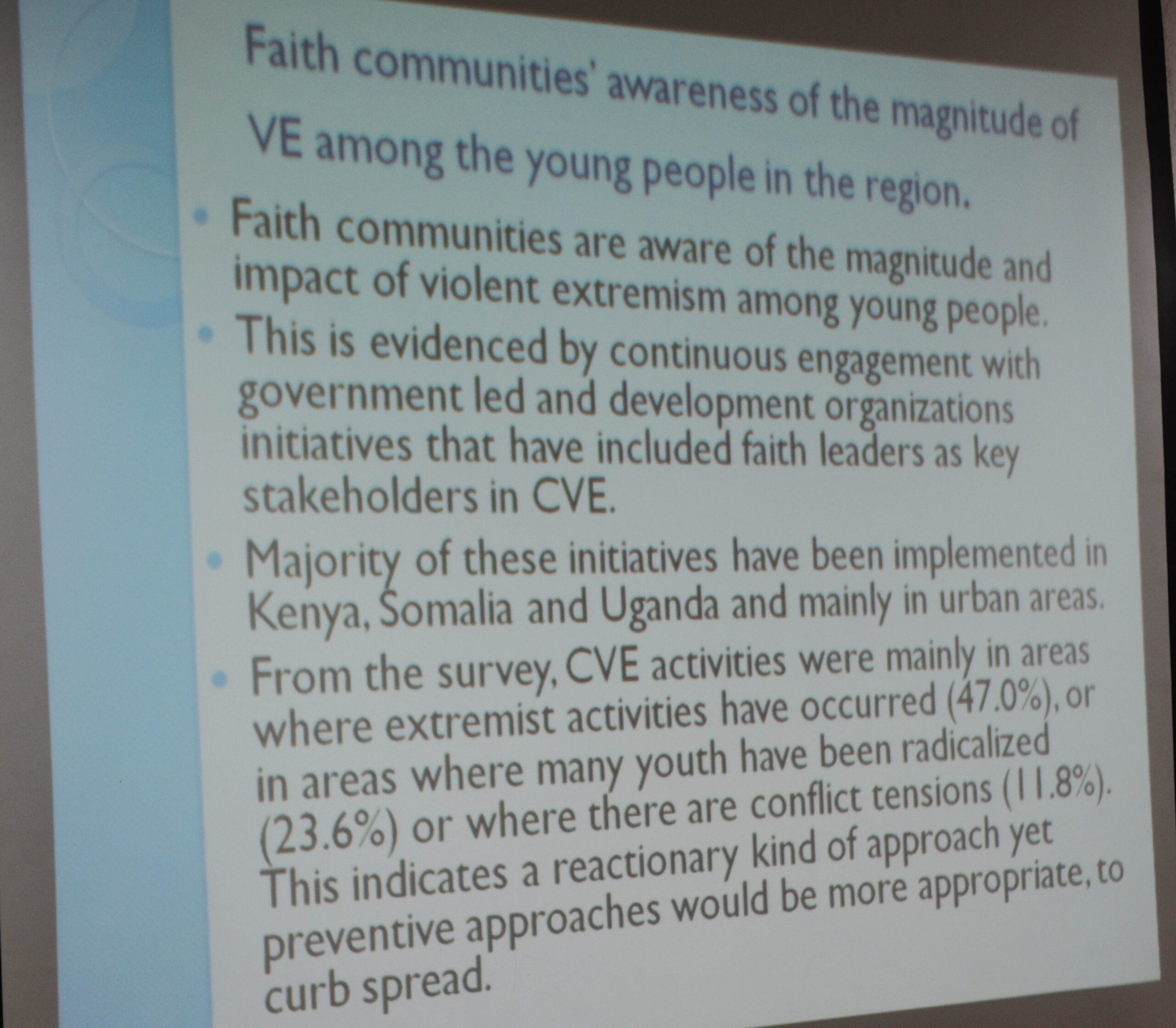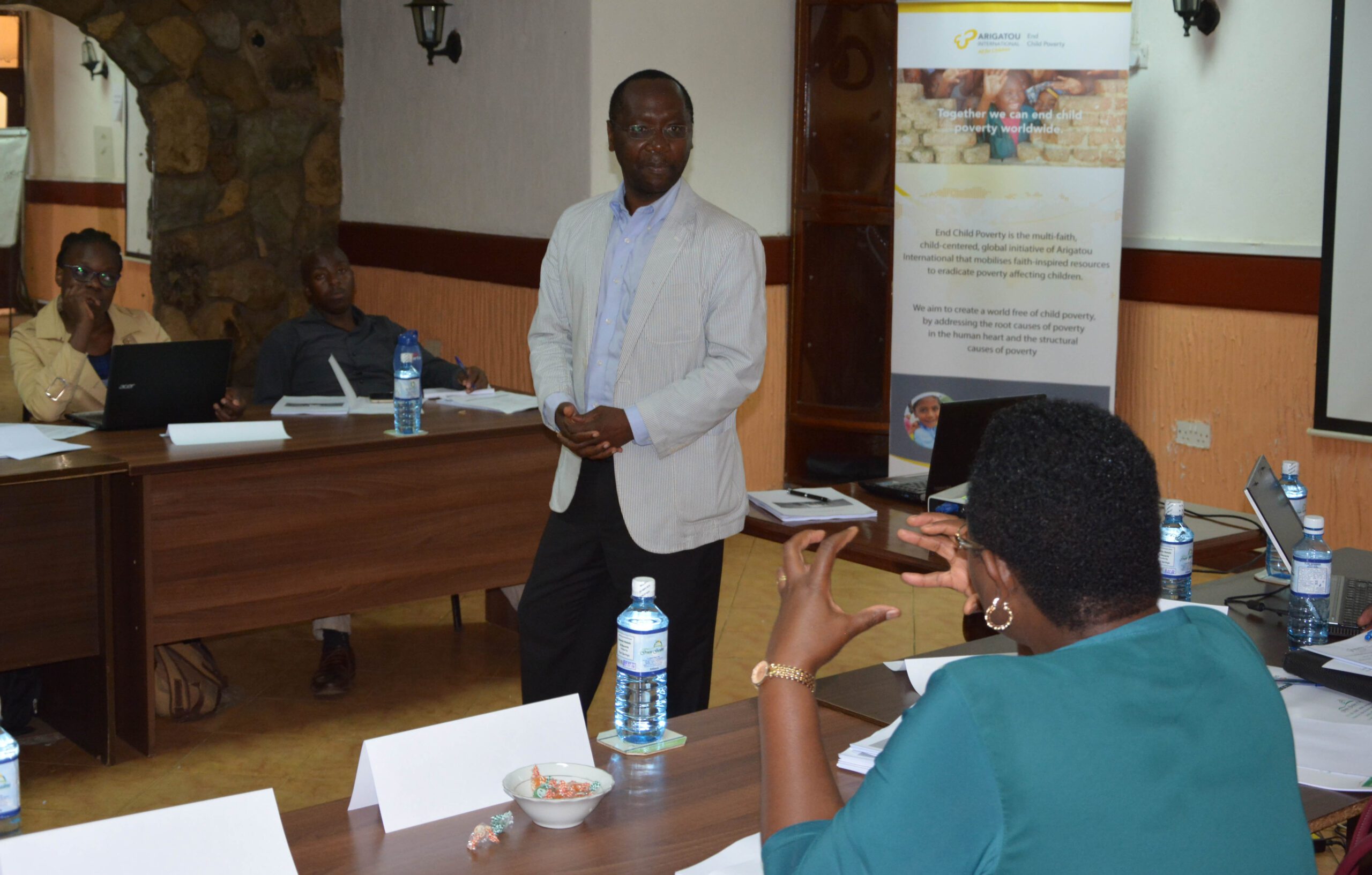
A recent study by Institute for Security Studies (ISS) and Finn Church Aid shows that 40% of all recruits into al Shabaab terror group were children and youth between the ages of 15-19 years. This means that youth and children are the top targets of radicalization into violent extremism in the Horn of Africa. Parents and the community at large worry that their children might be suspects of committed terror attacks or potential agents of crime.
Such is what compelled Arigatou International-Nairobi and her partners to conduct a Desk Analysis, “Understanding Youth and Violent Extremism in the Horn of Africa: The Role of Faith Communities”, to map out existing faith inspired-youth focused approaches and research on countering violent extremism within the Horn of Africa region. The Desk Analysis report was validated in a meeting attended by, Government officials, Non-Governmental Organizations and Faith-Based Organizations dealing with or interested in Preventing Violent Extremism (PVE) at Gracia Gardens, Nairobi, Kenya on 31st January 2017. A total of twenty participants attended the forum.
After an overview of Arigatou International and her responsibility to promoting a peaceful world, themes such as: – Deeper Understanding of Violent Extremism, Narratives/Counter Narratives/ Alternative Narratives to Prevent and Counter Violent Extremism and Enhancing PVE Partnership, were debated.
Crucial arguments such as: – need to partner with and considering the government as a key partner in preventing violent extremism, need to empower and include faith leaders and women in PVE, ways of reducing hard power of security forces/government, were touched.
 Dr. Dorcas Kiplagat (sitting) sharing a point with facilitator/Director End Child Poverty, Rev. Fred Nyabera
Dr. Dorcas Kiplagat (sitting) sharing a point with facilitator/Director End Child Poverty, Rev. Fred Nyabera
The forum was just one of the many deliberations set in place to address and seek possible solutions to stop radicalization and violent extremism. At the moment, there is a common feeling that how violent extremism affects youth and children is not sufficiently appreciated and addressed. Hence, more efforts should be directed towards this challenge. Some of the findings in this analysis will be addressed in the coming Interfaith Dialogue on Violent Extremism (IDOVE) meeting organised by the African Union, to address violent extremism in the African context.
 Dr. Dorcas Kiplagat (sitting) sharing a point with facilitator/Director End Child Poverty, Rev. Fred Nyabera
Dr. Dorcas Kiplagat (sitting) sharing a point with facilitator/Director End Child Poverty, Rev. Fred Nyabera
